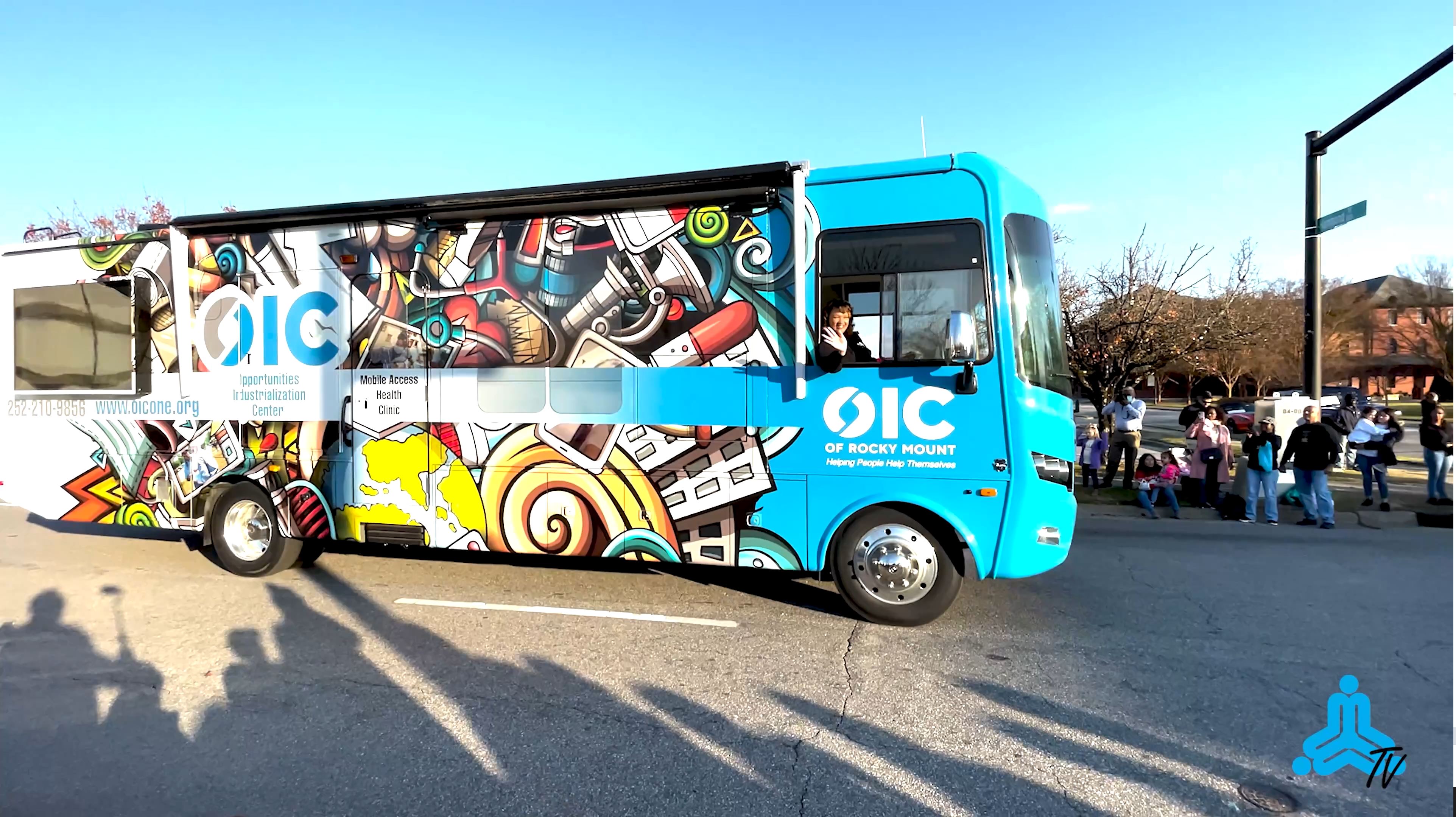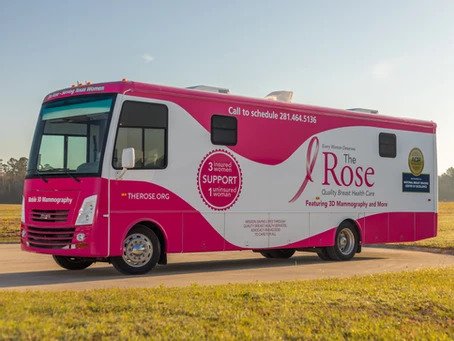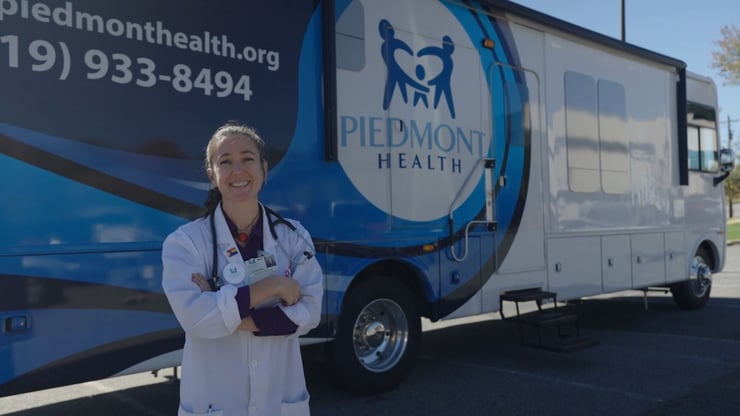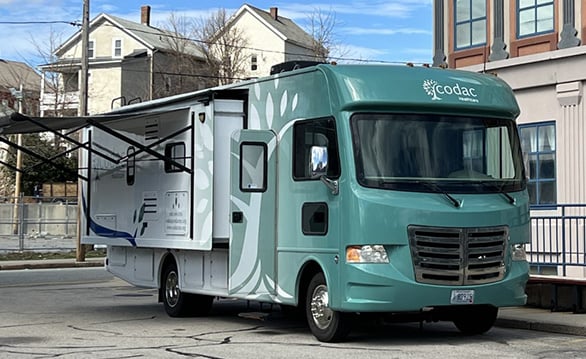Mobile Clinics: A Powerful Tool to Address Opioid Addiction
Opioid addiction remains a major public health crisis, with devastating consequences for individuals, families, and entire communities. According to...

Mobile clinics have become an increasingly popular way to provide healthcare services to those in underserved communities. These clinics are a vital resource, especially in rural areas where access to healthcare can be difficult, and improve patient outcomes by bringing healthcare services to the patient, rather than requiring the patient to travel to a healthcare facility when they might not have the time and/or resources to do so. In this blog post, we will provide an overview of some of the different types of mobile clinics by what type of care the provide in order to help you decide if a mobile clinic is best for your community's needs.
Mobile mammography clinics focus on providing breast cancer screenings to women in underserved communities. Equipped with state-of-the-art digital mammography machines and staffed by trained technicians and radiologists, these mobile clinics typically travel to underserved areas, community centers, and events to provide much-needed mammography screening services to women who would otherwise be without access. They're a tremendous resource for underserved communities, but like all mobile clinics, they also have their own unique rules and regulations for their use. Check out our breakdown of them here.

Primary care mobile clinics offer a wide range of primary care services such as physical exams, vaccinations, and preventive healthcare services. They may also offer referrals to specialists as needed. These clinics are staffed by doctors, nurses, and support staff and are equipped with state-of-the-art medical equipment to provide high-quality care that might otherwise be out of reach for many. For the range of regulations governing their use, access our blog on the subject here!

Mobile dental clinics provide dental care services such as cleanings, fillings, extractions, and even denture fittings. These clinics are staffed by licensed dentists and hygienists and are equipped with portable dental equipment. They often serve communities that have limited access to dental care, such as rural areas, schools, and community centers. For our guide on how to quickly and smoothly set up your own mobile dental clinic, access our top 6 tips.
For quick info on the special rules and regulations surrounding mobile dental clinics in particular, access our guide here. For specific rules and regulations regarding Direct Access in each state, take a look at our full 50 state breakdown here.
In case you didn't know, our CEO Travis LeFever was interviewed by Sonya Dunbar and Melissa Turner of the American Mobile Dentistry Alliance on how adding a mobile arm to your dental practice can be a great post-pandemic model to reach more patients...and it can do so with low overhead! Access the full interview here, or watch below!
Behavioral health mobile clinics provide mental health services such as therapy, counseling, and medication management. These clinics are staffed by licensed mental health professionals and travel to underserved communities to provide care. They often serve individuals who lack access to mental healthcare services due to geographic, financial, or other barriers. Here's our guide on how you can specifically zero in on behavioral care. Here's how the John Brooks Recovery Center did so for their South Jersey communities:
JBRC opened their clinic built by Mission Mobile Medical with a particular emphasis in addressing substance use and mental illness for vulnerable populations. Video featured by NJ Spotlight News
According to the National Institute on Drug Abuse, over 200 people die every day due to opioid overdoses in the United States alone. Many face significant barriers to care, but mobile medication clinics focused on opioid addiction treatment are a tremendous asset in changing that. They provide medication-assisted treatment (MAT) for opioid addiction, including the use of medications such as methadone or buprenorphine, and often provide support services such as counseling and behavioral therapy to help individuals overcome addiction. Staffed by addiction specialists, these clinics travel to underserved communities to provide much needed treatment right where the patients are.
One of the key advantages of mobile medication clinics for treating opioid addiction is that they can significantly reduce waiting times for treatment. With traditional healthcare facilities often overwhelmed and understaffed, people seeking help for opioid addiction may have to wait weeks or even months for an appointment. This can lead to increased risk of overdose or other complications, as well as discouragement and frustration that may deter them from seeking treatment altogether. Mobile medication clinics can provide more immediate access to care, which can make a crucial difference in the lives of people struggling with addiction. To learn more about how these types of clinics are a valuable asset against the opioid crisis, check out our blog on the subject here.
Mobile clinics ultimately play an essential role in providing healthcare services to underserved communities. By providing healthcare services directly to the patient, mobile clinics help to remove barriers to care and drastically improve patient outcomes. The different types of mobile clinics outlined in this blog post show the diversity of services provided by mobile clinics and the impact they can have on the communities they serve. Is one right for you?
If you have any questions, send us an email at info@missionmobilemed.com or if you're interested in Mission Mobile Medical's currently available models, download your free inventory guide below!

Opioid addiction remains a major public health crisis, with devastating consequences for individuals, families, and entire communities. According to...

Mobile clinics are becoming an increasingly important part of health centers and their ability to provide comprehensive preventative, primary, and...

Mobile clinics are playing an increasingly important role in promoting health equity in rural areas. In many parts of the world, rural populations...